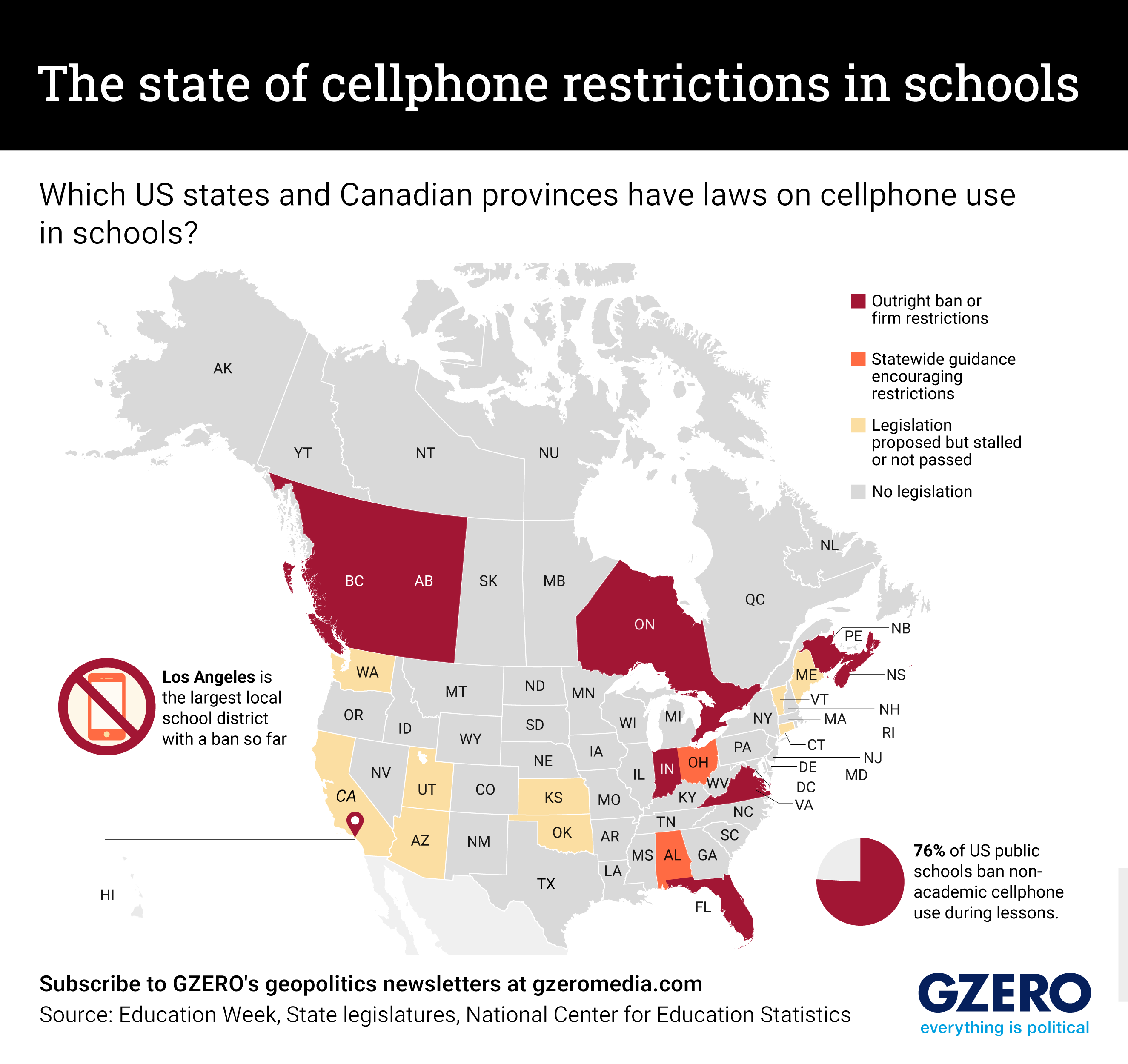July 25, 2024
Should smartphones be banned in schools? Three-quarters of US schools already restrict the use of cellphones during lesson hours, but only a handful of state governments have imposed blanket restrictions. Florida became the first one last year, followed by Illinois and Virginia, where bans will take effect this school year. In Canada, half a dozen provincial governments have passed restrictions.
The measures come amid growing scrutiny of the harmful effects of smartphone use in general – and social media in particular – on teen mental health. US Surgeon General Vivek Murthy in May called for cigarette-style health warnings on social media. A recent bestseller traces the rise of the current “Anxious generation” to the emergence of smartphones in the early 2010s. And as any schoolteacher can tell you, smartphones are generally not great for the classroom learning experience.
But on the other side of it, parents have raised safety concerns. Cellphones are often the only way for caregivers to locate or contact children during emergencies. As the number of US school shootings has soared over the past 10 years, some parents are particularly reluctant to cut that tie – especially during school hours. Alongside these worries, many parents and lawmakers simply think the decision should be left to local school boards rather than faraway state legislators.
Here is a look at the current state of cellphone bans in the US and Canada. By the way, where do you stand on this issue? Let us know here, along with your name and location, and we may publish your response in an upcoming edition of GZERO North.
More For You
The conflict in the Persian Gulf is already disrupting shipping in one of the most significant oil and gas-producing regions in the world.
Most Popular
A satellite image shows black smoke rising and heavy damage at Iranian Supreme Leader Ayatollah Ali Khamenei's compound, following strikes by the United States and Israel in Tehran, Iran, on February 28, 2026.
Pleiades Neo (c) Airbus DS 2026/Handout via REUTERS
Supreme Leader Ali Khamenei is dead, the conflict is spreading, and US President Donald Trump still isn’t clear on who he wants to run Iran.
Shipping in the world’s most crucial oil chokepoint has nearly ground to a halt after at least four tankers were targeted in Iran’s retaliation to US and Israeli strikes on Saturday.
Military personnel operate during the BAMEX'25 Defense Expo, in Bamako, Mali, November 11, 2025.
REUTERS/Francis Kokoroko
30: The number of foreign nationals who were kidnapped in Mali and Niger in the first 11 months of 2025, according to a new analysis from the BBC, up from seven in the preceding three years combined.
© 2025 GZERO Media. All Rights Reserved | A Eurasia Group media company.
